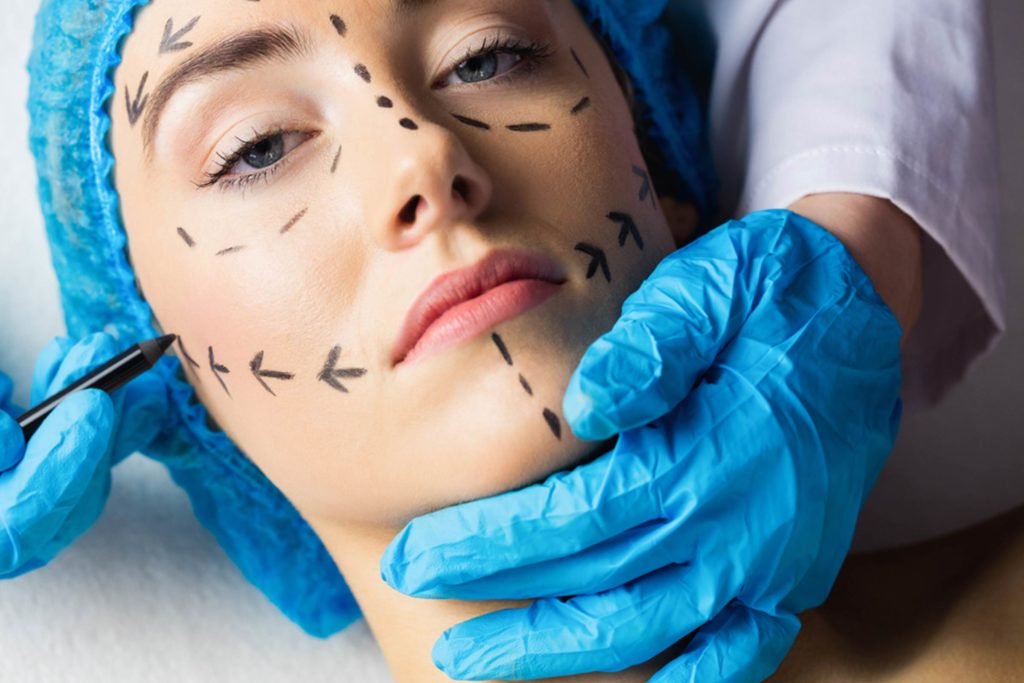Plastic surgeons serve prominent clients, or patients recovering from accidents and illnesses. The surgeons not only perform plastic surgery for cosmetic purposes, but they also perform reconstructive surgeries for people with body and facial defects, as a result of birth defects, aging, injury, or disease.
Besides, the specific surgical procedure performed by each plastic surgeon depends on their specialization. For example, cosmetic surgeons tend to perform breast augmentation and liposuction. Craniomaxillofacial surgeons deal with surgical procedures related to the face, mouth, neck, and jaws. Burn surgeons, on the other hand, help in getting rid of dead skin, grafting new skin, as well as treating scarring on patients suffering from burn injuries.
While the responsibilities of plastic surgeons do vary depending on their specialization, what skill does it take to become a plastic surgeon ? They also have general responsibilities. These include:
- Examining their patients to evaluate any illness or deforming, and then recommending the necessary surgical procedure—which can be cosmetic or reconstructive.
- Taking the patient through the recommended treatment procedure, including the risks and benefits of the surgical procedure.
- Doing a follow up to the patient after the surgical procedure, as well as providing the necessary post-op care.
- Performing the necessary non-invasive procedures required to restore the patient’s appearance.
- Maintaining the needed confidentiality for the patient’s information.
- Evaluating the psychological health of the patient before and after the operation.
To become a plastic surgeon, you’ll need to go through intensive and lengthy training. In addition to your education training, you’ll also need to have some skills that will make your work as a plastic surgeon easier.
The following are the skills needed to become a plastic surgeon
Table of Contents
Communication skills
This includes both written, verbal, and non-verbal communication skills. Moreover, you will need good listening skills, as well as be able to read non-verbal signals. As a plastic surgeon, you will need to explain technical treatment procedures to your patients in a manner that’s easy to understand.
Besides, you must communicate and pass instructions efficiently and clearly to other medical professionals, as well as your team members. This is essential, as it will make sure that your patients receive top-class medical services.
Moreover, plastic surgeons must keenly listen to their patients during the interview stage. This helps in determining the right treatment procedure for the patients. Lastly, a good plastic surgeon must read both verbal and non-verbal cues, and correctly interpret what the patient is not saying directly.
Interpersonal skills
Also known as personal skills, interpersonal skills are crucial for a plastic surgeon. Remember, you shall be working with other people, and as a team at any time. Therefore, you will need these skills to make sure that you offer the best possible services to your patients.
Dexterity skills
These skills are also known as fine motor skills. Plastic surgeons will need to be on top of their game when it comes to ease of using their hands accurately, hand-eye coordination, as well as attention to detail. The cosmetic surgeons at LabelleVie can agree that hand movement accuracy is essential for a surgical procedure to be successful. You must be able to maintain a steady hand and keep calm at all times, even when you are under pressure.
Technical skills
Now, these are the hard skills that plastic surgeons learn while in school. These skills include learning how to handle surgical and medical equipment. Moreover, a plastic surgeon must possess good math skills. These skills will come in handy when determining the right dosage for their patients after the surgery.
Problem-solving skills
Just like in any other medical field, problem-solving skills are vital when it comes to plastic surgery. Although plastic surgery is considered to have high safety levels, at times things can go sideways. Therefore, a plastic surgeon must be able to solve any problem fast and effectively in case of any emergency, and without putting the patient’s life at risk.
Stamina and patience
Yes, you might overlook these two skills but you’ll need them. Some plastic surgery procedures are exhausting. Some of these procedures can take up to six hours. And, you will need to remain focused throughout the entire time if you don’t want to make fatal mistakes.
In addition to proper training and the skills mentioned above, you will also need the necessary licensing and certifications before you qualify to become a plastic surgeon. Thus, you must pass an examination to test your skills and knowledge to get the right certification. If you want to acquire board-certification, you must also sit for a board-set exam to prove your skills and knowledge.





